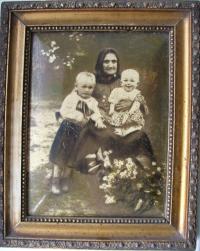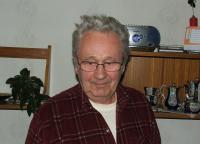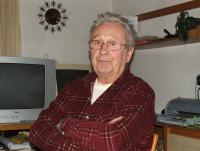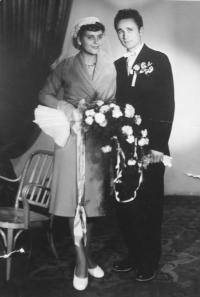We were hit by the view of totally destroyed houses and dozens of disfigured dead bodies of our relatives and neighbors
Mr. Josef Řepík was born on February 2nd 1934 in Český Malín village in Volhynia. He is among the small group of citizens of this village, who almost miraculously survived the burn of the village by Nazi soldiers in July of 1943. In 1947 he and his family moved to former Czechoslovakia. His father along with couple of other survived inhabitants was entrusted by authorities to bring the mold from the common graves from Český Malín to Czechoslovakia. The family settled down in Frankštát town in Šumperk region, which was shortly officially renamed Nový Malín. The mold which the Řepík´s family brought from their village has been ordered into the monument of the victims of Český Malín placed behind the Frankštát church. Josef Řepík began to be consistently interested in fate of the inhabitants of Malín town, he began to collect the materials and documentation about the life of Czechs in Volhynia and later also in Czechoslovakia. He knew most of the living former inhabitants of Czech Malín town. He died on January 27, 2019.




